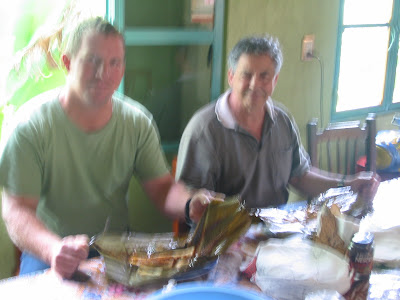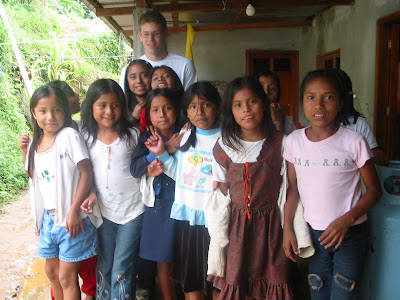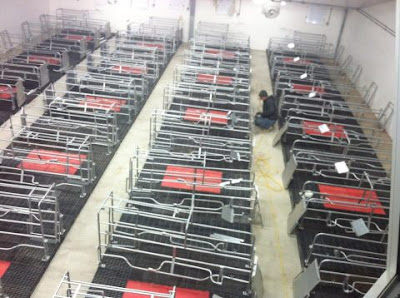Women in Agriculture
I would like to answer this article with a personal story.
Some years ago I had the opportunity to visit David Forris and his wife in a remote Chinatec indian village in the mountains of southern Mexico, Oaxaca Province (our visit was not a tourist destination). Mr. Forris is aWycliff bible translator and has spent his career documenting the society, developing a written form of the language, translating helpful literature into the native language, teaching natives to read the language, then documenting the changes in society, here is his book. Of course his primary aim was to translate the Holy Scriptures for the people so that they might have easy access directly to the teaching of God and Christ for belief.
 |
| Mr. Forris (right) and I eat food cooked in a bannana leaf |
What the documentation shows is that when people start to read the Gospel (the first thing translated) society starts to become more civil. Men stopped drinking, chasing women, neglecting their families, and the whole list of human failings. Women and children also responded favorably and began to benefit from the increased civility. I do not remember the details only the broad analysis.
 |
| a church service |
One of the other observations/memories from my visit is evident in these pictures. Where are the man? I was told it was that time of year when the men went to find work in the cities or the U.S.. I realised then that the workers I always thought of as Mexican or Spanish, were in fact all of these things and many more.
 |
| a scenic corn field |
Food is grown where ever it can be in the mountains. It was reported that people have "fallen out" of their corn fields.
 |
| a private home |
Housing was rudimentary for many.
 |
| walking was the common form of transportation |
Tranportation utilized old technology, but it still worked.
 |
| language school children |
The society at the time of our visit was warm and welcoming.
So my response to the article at the lead of this blog post is to suggest that there are multiple paths forward. The path I witnessed in Mexico was uplifting men and women and children by addressing first their heartfelt need for a spiritual understanding of their condition. Then allowing them to work out the social details as fit their need. The article leaves me concerned that the men are being singularly blamed for the problem and overlooked in the solution. Beyond that I will hold my comments at the present time.


















